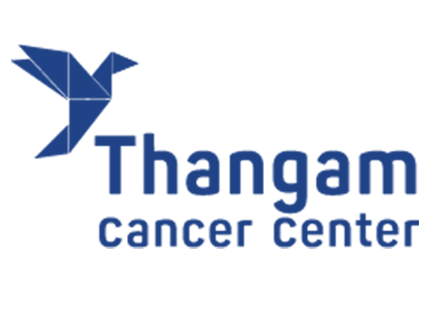Key facts about childhood cancer:
- Leukaemia, brain tumours, lymphomas, and solid tumours like neuroblastoma and Wilms tumours are some of the common categories of cancer in children.
- Screening typically does not help in preventing or detecting childhood cancer.
- In low- and middle-income countries, preventable deaths from childhood cancer occur due to difficulties in diagnosing, misdiagnosis, delayed diagnosis, challenges in accessing care, discontinuation of treatment, death from treatment side effects, and relapse.
- Over 80% of children in high-income countries survive cancer, due to the availability of comprehensive diagnostic and treatment facilities. Whereas, in low- and middle-income countries only less than 30% of children are cured.
Childhood or paediatric cancer is a complex medical condition affecting countless children annually and can be painful for families and loved ones. This blog is to create awareness and enable you to understand the various forms of cancers in children and young adults, their possible causes, and related cancer risk factors to help you understand the critical issue.
Being aware helps you detect childhood cancers in their early stages and get your child treated at the best oncology hospitals in Namakkal with best-in-class prevention and treatment strategies to ensure better outcomes in children.
Let’s look at some causes of cancer in children:
- Cancer can affect people irrespective of their age and can form in any part of the body. It occurs due to genetic changes in individual cells, which then develop into a mass or tumour that invades other parts of the body, causing damage or death if not treated.
- Childhood cancers are unique, as most cases have no known cause, unlike adult cancers. This makes finding a cure and understanding the disease even more challenging.
- Numerous studies have been taken up to identify the causes of cancer in children and only a few types of cancers in children are due to environmental or lifestyle factors.
- At the best oncology hospitals in Dharmapuri as part of cancer prevention approaches, they focus on inspiring children to take up healthy habits so they do not develop preventable cancers when they become adults.
- Certain chronic infections, like HIV, Epstein-Barr virus, and malaria increase the risk of developing cancer in children, particularly in lower or middle-income countries. It’s vital to keep a watch on various infections as they can increase the child’s risk of developing cancer as an adult.
- It’s best to get children vaccinated against hepatitis B and human papillomavirus to lower the risk of developing liver cancer and cervical cancer respectively.
- Also, cancer consultants at Thangam Cancer Centre always recommend undergoing regular health check-ups for early detection and taking the necessary and prompt treatments for chronic infections that can lead to cancer.
- As per WHO statistics 10% of all cancers in children are influenced by genetic aspects. Further research is in progress to identify other key elements that cause cancer development in children and young adults.
What are the common types of cancers in children:
Are you aware that childhood cancer occurs at a lower but significant rate compared to adults? There are several types of cancers that occur in kids that you need to be aware of, common forms include leukaemia, brain tumours, and neuroblastoma.
- Leukaemia is a form of blood cancer that starts in the bone marrow and then spreads into the bloodstream. It’s a condition that occurs due to the production of abnormal blood cells in the bone marrow. This severely impairs the functions of white blood cells responsible for fighting infections.
- Paediatric Brain Tumour, or childhood brain tumour is a condition wherein abnormal cells grow in the child’s brain or nearby areas. These tumours can be benign (non-cancerous) or malignant (cancerous), and it’s essential to understand the differences.
- Neuroblastoma is a congenital condition and is common in children. Cancer cells develop in the tissues that form the sympathetic nervous system and are often detected when these cells start to grow and take up space within the body.
Risk factors of childhood cancers
When it comes to cancer in children, the cancer risk factors are quite different compared to adults. While environmental and lifestyle factors significantly influence the development of cancer or tumour cells in adults, the real causes of cancer in children are still not very clear.
However, doctors and researchers believe that DNA mutations can be one of the factors causing abnormal growth of cells in infants and kids. This is because a child’s DNA contains materials that control how cells grow and divide. When mutations occur, they influence cells to proliferate, gradually leading to the development of cancer.
Certain symptoms that you might notice in your child for childhood cancer:
It’s crucial to monitor children for any unnatural changes in their behaviour or physical condition because detecting symptoms early in children is vital to combat cancer with the necessary preventive and treatment approaches. Listed here are some of the common signs of cancer in kids:
- Large swellings or abnormal lumps on your child’s body
- Unexplained and continuous fatigue
- Prolonged fever and changes in vision
- Your child might experience sudden and considerable weight loss
- Early morning or nighttime nausea and recurring headaches
- Continuous pain in the bones, joints, back, or legs
- Frequently acquiring infections
- White reflection in your child’s eye
- Bloated or swollen abdomen
- Persistent seizures with or without vomiting
- Limping while walking
Consult cancer consultants at the best oncology hospitals in Namakkal if your child is experiencing any of the above childhood cancer symptoms. We provide prompt assistance with appropriate preventive and treatment approaches.
At Thangam Cancer Center, we understand the emotional strain on your family when your child is diagnosed with cancer. Take care of your child from an early age with regular health check-ups and encourage him to follow healthy lifestyle habits to prevent more severe consequences.

